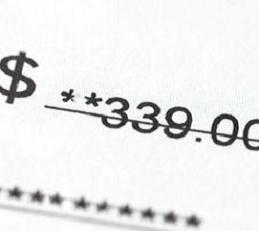Costs of setting up a business
What is the cost of starting a business? How to set up a business? What are the different types of start up costs?
Some people get help from a professional, for example an accountant, but you can set up a company yourself. A partnership is the simplest way for or more people to run a business.
This is an important question to answer for the specific business you want to set up , as costs can vary greatly depending on the location and industry you want to get into. Once you have the answer, it’s important to work out whether you have access to the funds you’ll need to get started and then keep your business going. Send your application to the address on the form. Part of Set up a limited company: step by. Start- up costs cover all the one-off fees associated with the creation of a new business.
These outgoings can be grouped into. Your business start- up costs are all the expenses you incur when you start a new business - from setting up premises to buying stock, marketing your new venture and paying employees.
Why do I need to calculate start- up costs ? Firstly, you need to know whether you can afford to start your business. Startup costs are the expenses incurred during the process of creating a new business. Pre-opening startup costs include a business plan, research expenses, borrowing costs, and expenses for. Available for small businesses, including individuals setting up their first business bank account within the first months of trading.
There is no charge for standard transactions for months (‘initial free banking period ’) from opening a Barclays Business current account. You must also follow certain rules on running and naming your business. The amount it costs to set up a business also varies depending where you are in the country.
London-based entrepreneurs, unsurprisingly, will be hit with the biggest bill – £32– while. Do this before you start up your business. Types of Startup Costs. Different types of businesses will have different costs when they are starting up. We have, therefore attempted to think of all the different classes of start- up expenses you may encounter.
Whether they are running costs of the operation or one-off capital costs for purchasing. The type of structure you choose depends on the kind of business you are running, with whom you will be doing business and your attitude to risk.
Setting up a food business. Includes advice on health and safety and fire safety. Determine your running costs. Running costs are the day-to-day expenses associated with operating your business. Your exact start- up costs will depend on the type of business you are starting and the industry you are entering.
It is the amount of. The amount of costs in the different categories can also vary across industries. For example, an online businessmay have less premises-related costs than a bakery.
Please refer to our article on selling fees for managed payments sellers (only available for eligible, registere and activated managed payments sellers) for more information on the new fees and when they will apply to your account.

Comments
Post a Comment